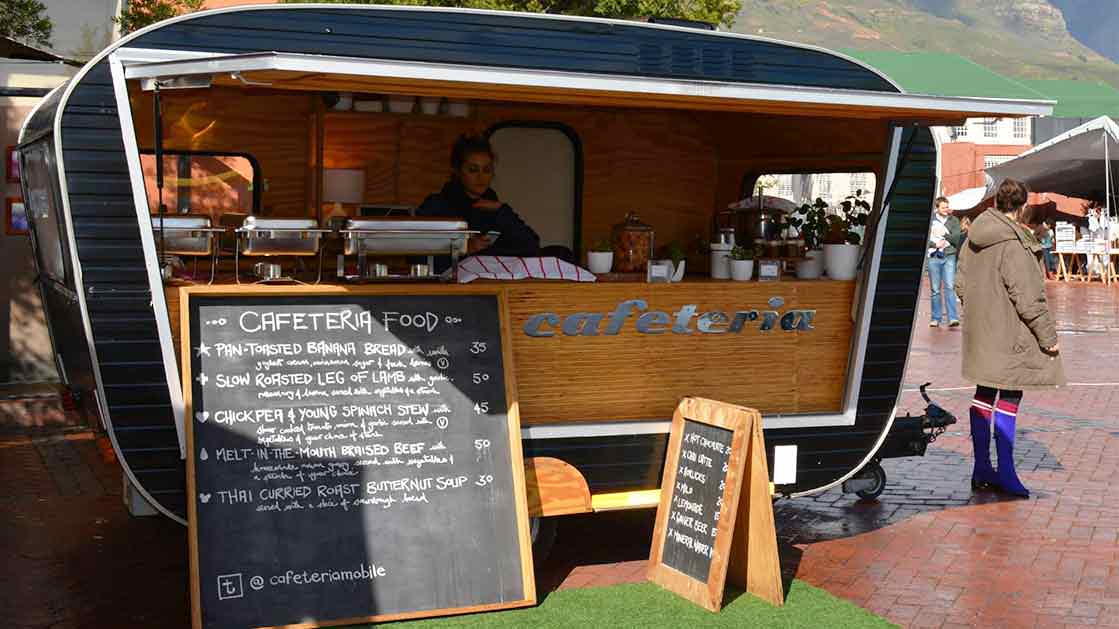Guest Explorer: Ilana Sharlin Stone
Ilana Sharlin Stone is an American freelance writer and former chef who has lived in Cape Town, South Africa since 1994. Originally from Los Angeles, she worked as a professional chef for 15 years and opened and operated Rustica, the iconic rustic Italian restaurant in Cape Town, in the early post apartheid years.
Stone is a regular contributor to Zester Daily, the U.S.-based food and drinks site, and has contributed articles and online content to Bon Appétit, Food & Wine, Gourmet, LA Times, Metropolitan Home, Gourmet, Budget Travel and Travel + Leisure Online, as well as numerous South African publications. Stone blogs about food and food culture in South Africa at Finding Umami in Cape Town. She will soon publish a memoir she has written about her experience of opening a restaurant in South Africa.
If there’s one food trend I endorse, it’s the non-trend. Don’t get me wrong – there’s nothing wrong with shakshuka or green shakes or kimchi – in fact, none of these started out as trends. It’s just that the best trends are untrendy…they’re for keeps. You don’t get tired of them, because they’re just that good. I think that’s what’s happening right now with Cape Town.
Therefore, my number #1 non-trend, without reservation, is quality: food lovingly and respectfully prepared from carefully sourced ingredients. Food that’s so good, you can taste its integrity. And I’ve got news….this is The “Trend” that’s seeping into Cape Town, penetrating everything from our restaurants to our burgeoning market scene to our shops and delis.
Yes, friends, the emphasis is now on substance in Cape Town, rather than gimmick. I’m talking about that extra bit of care and authenticity that keeps us coming back to that restaurant on Church Street or that bagel place on Bree Street or the OZCF Market on Saturday mornings. Have a look around the world, and you will see that it is exactly this focus on quality that is the hallmark of a great food city.
Here are five more of what I hope are non-trends, heating up the Cape Town food scene!
1. Chef-Driven Restaurant Groups
I’m not talking chain restaurants here, or cookie cutter copies of the same concept. I’m talking chefs using different formats to try out new ideas and levels of formality…and to generally keep things fresh and have fun. Like Luke Dale Roberts from the Test Kitchen (#28 in the World’s Top 50 Restaurants), whose Shortmarket Club, his partnership with his top chef Wesley Randles and manager Simon Widdison, opened earlier this year (his other restaurant is The Pot Luck Club, where small plates are filled with big flavour).
Liam Tomlin, chef owner of Chefs Warehouse, will be opening an Indian restaurant in the CBD and a tapas restaurant at the magnificent Beau Constantia Wine Estate (best view in Constantia) shortly, and just down the road, Scot Kirton, chef of the highly lauded La Colombe, will open the more casual Foxcroft with his pastry chef Glen Foxcroft Williams. Most recently, Bertus Basson of Overture and Spice Route has just announced that he will be revamping the revolving restaurant at the top of the Ritz Hotel in Sea Point.
2. Flourishing Market Scene
It seems that each week, there are more and more farmers’ markets on the scene, from the city’s two weekly biggies– the Neighbour Goods Market at the Biscuit Mill and the OZCF Market at Granger Bay – to monthly markets in outlying communities. In August, I went to the Malle Tulbagh Mark in Tulbagh, set on Druk My Niet Stud Farm. The drive there and back was spectacular and in between we gorged ourselves on bread, cheese, salami, coffee and gin and tonics!
While to some, it may seem like a market bubble is imminent, I’m not so sure about that. Fuelling the increasing tide of markets are the record number of enthusiastic artisans entering the marketplace along with consumers wanting to eat better, fresher food. Look out also for more community grocers, like The Olive Branch Deli in Cape Town, where locals can stock up on artisanal products in between markets, and tourists can pick up some great goodies – especially local extra virgin olive oil – to take home.
3. Upper Crust Bread
While our supermarkets have always had good, wholesome in-store baked breads, the same cannot be said for our restaurants. However, the “knead” is now being fulfilled with many restaurants either producing their own quality breads or buying from great local bakers, like the Woodstock Bakery. Other great sources for great breads and pastries are the two super popular bakery/cafes owned by Jason Lilley, Jason Bakery and Bar Dough by Jason.
4. Moving towards Informality
While there will always be a place for formal dining, the younger generation of chefs are embracing a new informality. This means that good food doesn’t necessarily have to be five star and served on white tablecloths. Food trucks and festivals like the Street Food Festival have also helped usher in a new kind of thinking. At The Table, the idyllic restaurant on a green lawn at De Meye Wine Estate in the Stellenbosch Winelands, just-picked produce and ethically reared meats are simply and beautifully served family-style on vintage platters. While the quality is superb, the experience is like eating a relaxed lunch in a friend’s garden: which feels very South African.
5. Proudly South African
When apartheid ended 22 years ago, South Africa was no longer a world pariah. This meant that there was an influx of international influences coming into SA, as well as local chefs having the freedom to travel and experience other cuisines. While there is still interest in foreign cuisines, there is a new move towards preserving and further developing local cuisine. Chef Bertus Basson is one of the local chefs leading the charge to celebrate what is truly South African, both through excellent local ingredients and refurbishing of classic recipes.



